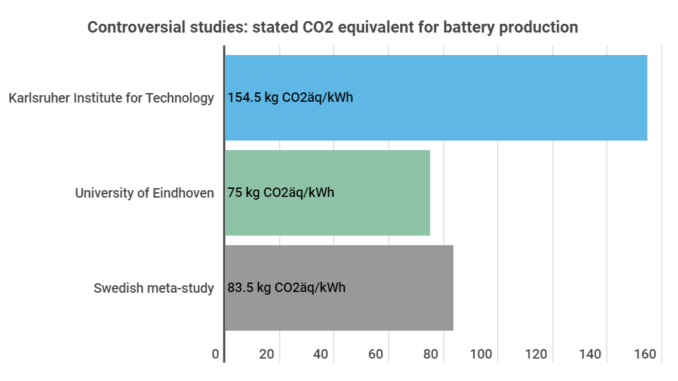
Although more and more companies are shifting their focus to electromobility in order to comply with climate targets, the scientific community has by no means reached a consensus on what the propulsion system of the future will look like. This is shown in a new infographic from Block-Builders.net
During manufacturing an electric car’s overall CO2 footprint is much larger than that of a conventional combustion engine. Production of an electric vehicle, for example, produces 16.8 tonnes of CO2 equivalents, whereas a modern car with a diesel engine produces 8.4 tonnes. As the infographics show, after 12 years of use the production of an electric vehicle accounts for almost 60% of the total emissions. This is shown by data from the Association of German Engineers (VDI).
Depending on the size of the battery, it can take 300,000 kilometres of driving before net CO2 emissions are lower than those of a modern diesel. The VDI concludes that all propulsion systems could be climate-friendly and that all product developments should be pursued in parallel. However, other scientists arrive at significantly different conclusions.
Of Great Relevance for Auto Shares
While German manufacturers such as Volkswagen are pushing and prioritising electric mobility, the opposite trend can be observed in China. The Middle Kingdom is aiming for a market share of about 55% for electric cars with batteries, hydrogen vehicles and plug-in hybrids by 2035. However, top-ranking politicians there are more open to conventional vehicles: “We do not want to stamp out petrol vehicles, as is happening in some countries,” it is said there.
The climate debate is a key issue in the automotive market. Nevertheless, the data available for assessment and evaluation remains highly divergent. As a bi-product of the production of batteries for electric vehicles, the Karlsruhe Institute of Technology quotes CO2 equivalents (CO2eq) of 154.5 kg / kWh. By contrast, the University of Eindhoven calculates 75 kg CO2eq / kWh.
A Glance at the Stock Market
Investors seem to take a much less controversial view of the situation. 53.9% of Americans expect Tesla to show the strongest price increases over the next 5 years. The US pioneer exclusively produces electric vehicles. However 9.3% are betting on hydrogen stock Nikola to outperform the competition.
In retrospect, manufacturers of electric vehicles have so far been having the best of it. While Tesla’s share price has shot up by 508% in the last 365 days, Daimler’s market capitalisation has risen by a mere 9.9%. Volkswagen is currently still trading around 12% lower than a year ago. Shares in hydrogen company Nel ASA, on the other hand, have increased in value by 126%. Nevertheless, the increase has been much higher in the case of Tesla.
Leave a Reply